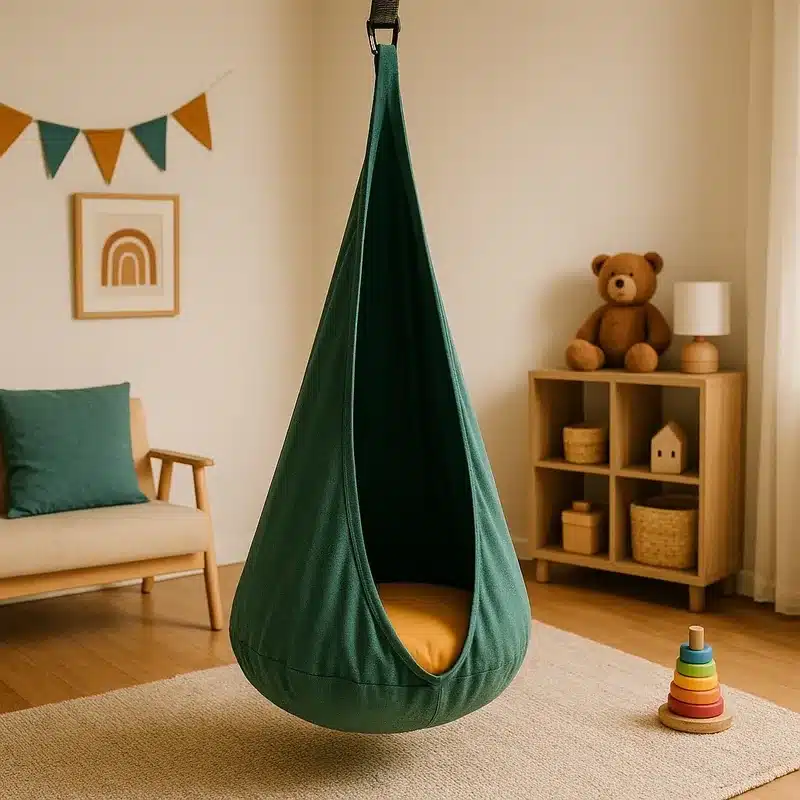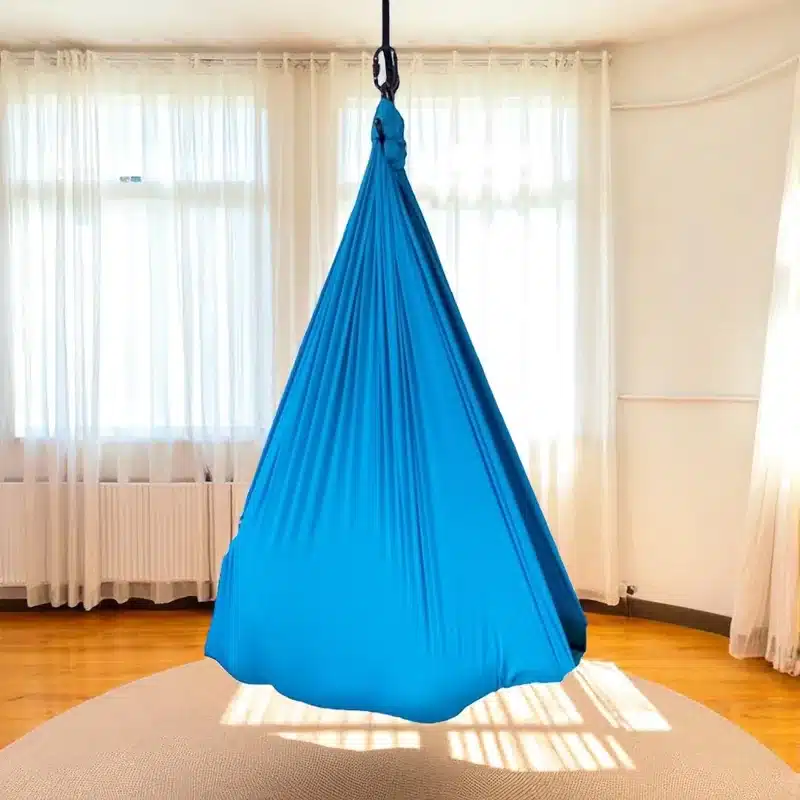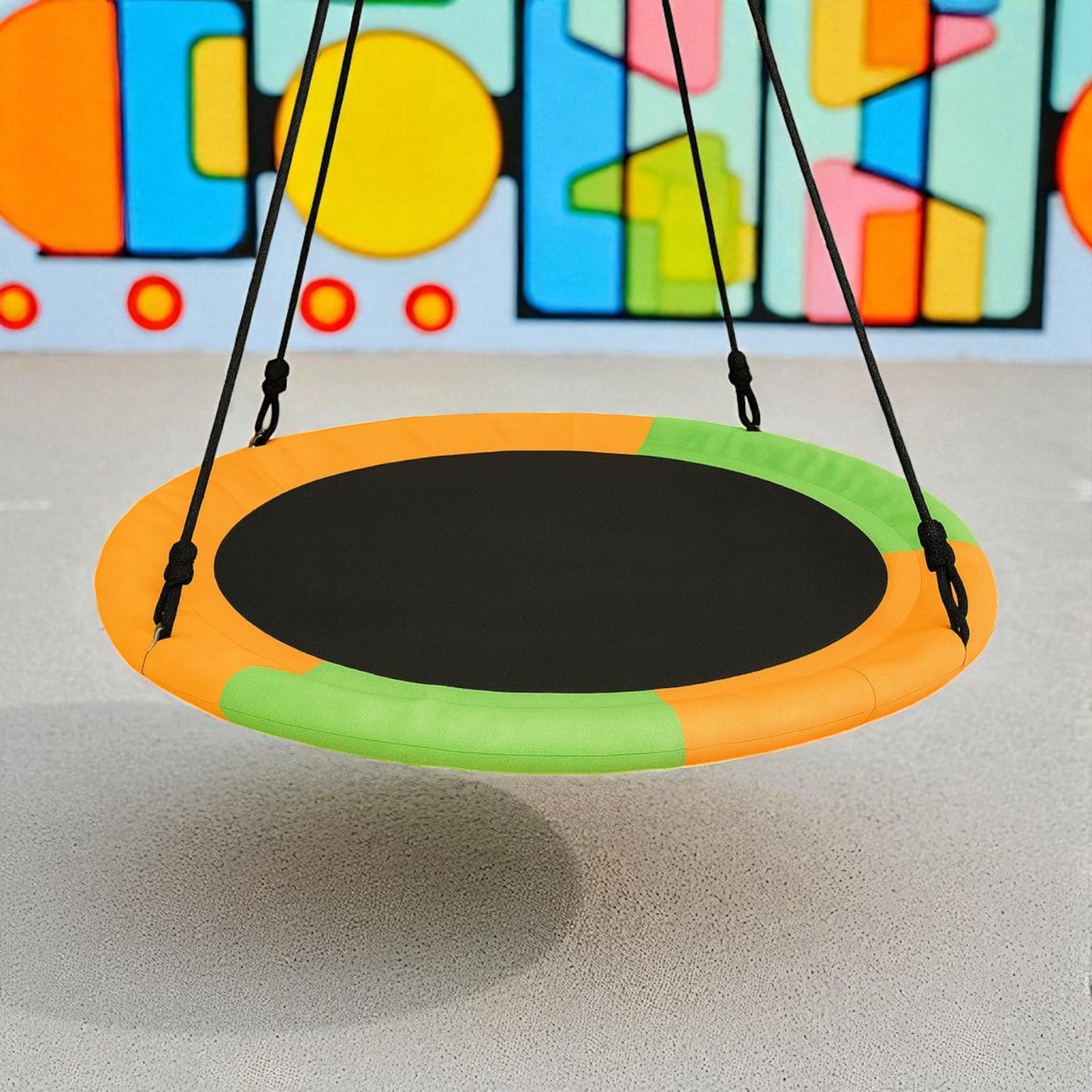Best Sensory Swings (2026) – Top Picks and How to Choose
This mini guide compares Pod (Cocoon), Compression, and Platform swings so you can choose the best sensory swing for your space and goals. Use the interactive picker below for a fast recommendation, then jump to quick picks or the comparison table.
- Updated: Jan 2026
- OT-informed
- Amazon picks
Which Swing Should You Choose?
Quick Situations
Pick the situation that sounds most like yours. We’ll suggest a swing, two runner-ups, and helpful links.
Best Sensory Swings: Quick Picks

Best Pod (Cocoon)
Enclosed hug and visual shielding. Great for overwhelm and calm-down corners.
- Mount: single point; small footprint
- Why we like it: cozy seat option, easy to place

Best Compression
Stretchy wrap hug with steady motion. A great all-rounder.
- Mount: single point; small footprint
- Why we like it: pressure plus movement in one

Best Platform
Flat base for sitting or tummy-lying. Excellent for balance and therapy play.
- Mount: single or dual; more clearance
- Why we like it: versatile and sibling-friendly
Affiliate disclosure: As an Amazon Associate, we earn from qualifying purchases.
Compare Pod vs Compression vs Platform
Pod (Cocoon) Swing
Soft, teardrop shape that encloses the body; some include a seat cushion.
- Input: Deep, enveloping pressure; reduces visual input
- Motion: Gentle sway; some spinning
- Best for: Overwhelm, calm-down corners
- Consider: Some riders dislike enclosed or tight spaces
Compression Swing
Stretch fabric wraps the body for a hug feel with more freedom than a pod.
- Input: Even pressure and proprioception
- Motion: Front-back swing; light bounce; gentle spin (as allowed)
- Best for: Sensory seekers; pre-homework or bedtime regulation
- Consider: Less visual shielding than a pod
Platform Swing
Flat seat base for sitting or tummy-lying; allows multi-direction movement.
- Input: Vestibular plus core and balance work
- Motion: Front-back, side-to-side, diagonal
- Best for: Motor planning, therapy play, siblings taking turns
- Consider: Less hugging pressure; add a lap pad if desired
Show compact table
| Feature | Pod | Compression | Platform |
|---|---|---|---|
| Pressure Feel | Deep cocoon pressure | Stretchy wrap hug | Minimal (add lap pad) |
| Motion Style | Sway + light spin | Sway + gentle bounce | Multi-direction vestibular |
| Sensory Shielding | High (enclosed) | Medium | Low |
| Best For | Overwhelm, visual reduction | Self-regulation with pressure | Balance, core, therapy play |
| Space and Mount | Single point; small footprint | Single point; small footprint | More clearance needed |
Helpful Links: Mounting, No-Mount, and Room Setup
Next Steps
- Pick your type above or use the chooser for a targeted recommendation.
- Open our curated Amazon list and choose a starter setup.
- Use the links for mounting, no-mount, and room layout help.
Best Sensory Swings: FAQs
What is the best sensory swing for small spaces?
Compression swings are single-point and have a small footprint. Pod swings also work in tight rooms when visual shielding helps. Always check swing arc and obstacles.
Which sensory swing is best for calm-down?
A pod swing offers an enclosed retreat that reduces visual input. If enclosure is not tolerated, try a compression swing for pressure and steady motion.
What is the best swing for therapy play and core strength?
Platform swings allow multi-direction movement and tummy-lying, which support balance, core, and motor planning.
